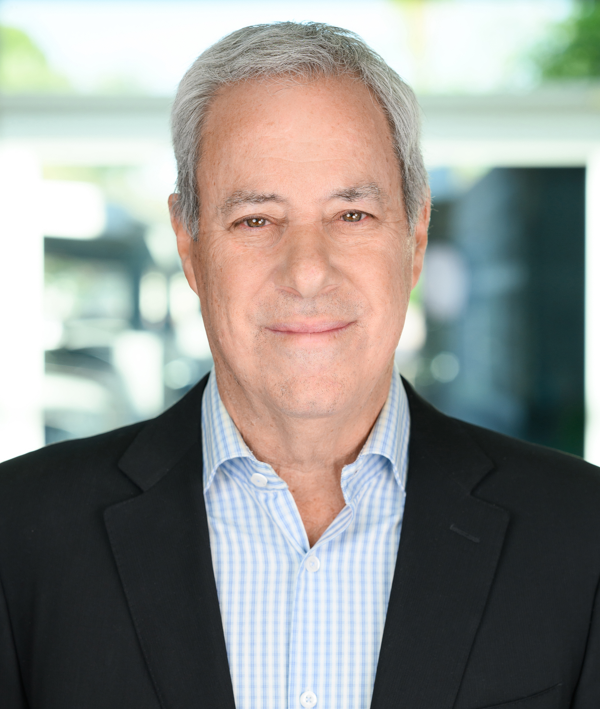Collaborative researcher remains focused on finding effective Alzheimer’s prevention therapies

Dr. Eric Reiman, who has led Arizona’s transformation into a destination for Alzheimer’s and other age-related research, will receive the 2025 AZBio Pioneer Award for Lifetime Achievement at the annual AZBio Awards.
The Oct. 15 event at the Phoenix Convention Center celebrates leaders, researchers, entrepreneurs, and educators who are advancing the biosciences statewide.
A world-renowned researcher and collaborator dedicated to patient care, Reiman is the CEO of Banner Alzheimer’s Institutes, director of the Arizona Alzheimer’s Consortium, an Arizona State University and University of Arizona professor, a clinical director at Translational Genomics Research Institute, or TGen, and a leader of the Alzheimer’s Prevention Initiative.
In addition, he has served on the Flinn Foundation Board of Directors since 1999 and as chair since 2023.
And while Reiman’s award honors his lifetime of research and achievement to advance the early detection, diagnosis, treatment, and potential prevention of Alzheimer’s disease, he remains intently focused on his work ahead.
Q: What would you like to accomplish in your research over the next five years?
Reiman: I’m excited about the chance to find effective Alzheimer’s prevention therapies, first in cognitively unimpaired people with blood test evidence of the disease, and then in unimpaired people who do not yet have any evidence of the disease. I’m excited about the chance to further develop, test and deploy blood tests and AI agents in ways that help transform the evaluation and care of age-related memory and movement disorders. And I’m excited about the chance to help my research and clinical colleagues find ways to achieve these breathtaking goals together.
Q: The Arizona Alzheimer’s Consortium is considered a leading model of statewide collaboration in Alzheimer’s disease research. What has made the consortium so successful, and can its model be replicated in other areas?
Reiman: The Arizona Alzheimer’s Consortium includes more than 250 researchers from 14 universities, health systems, and research institutes in the state. With support from the Arizona Department of Health Services and the participating institutions, it capitalizes on researchers and programs with complementary strengths and converging interests to have the greatest impact. Researchers in the consortium have made pioneering contributions to the scientific understanding of AD, including the unusually early detection, tracking, study and diagnosis of AD, the accelerated evaluation of putative AD prevention therapies, and the scientific understanding of the aging mind and brain, and improvements in the way we evaluate and care for patients and family caregivers. It’s been a joy to see Arizona become a destination center in the fight against Alzheimer’s and related diseases.
Q: You were a member of the Flinn Foundation board when it committed to substantial funding of the biosciences and the creation of Arizona’s Bioscience Roadmap in 2002. What has this decision meant to Arizona?
Reiman: Over the years, Arizona’s Bioscience Roadmap has brought together leading stakeholders from the public and private sector, and academic, industry, and health care research to exchange information about our scientific strengths, challenges, and opportunities, scientific and economic productivity and impact, and the kinds of investments and initiatives needed to fulfill our ambitious goals. It continues to cultivate a shared sense of interest in Arizona’s bioscientific and related programs, promote a remarkable spirit of collaboration, and give us a chance to have a profound impact on people here in Arizona and around the world.
Q: As a psychiatrist and brain imaging researcher, how did you gravitate toward a career in Alzheimer’s research?
Reiman: In the early 1990s, I became moved by the toll that Alzheimer’s disease takes on the entire family, even though it had little to do with my research. I wondered if we could use brain imaging techniques to detect Alzheimer’s many years before the onset of symptoms, speed up the evaluation of promising Alzheimer’s prevention therapies, and find ones that work. Later, I become interested in what we could do to better address the medical and non-medical needs of these families. Thanks to my wonderful colleagues and collaborators, amazing supporting, and heroic patients, family caregivers and research participants, we have a chance to achieve each of these goals.
Q: What is your advice to a new generation of researchers dedicating their lives to finding a cure and prevention of this disease?
Reiman: Welcome to our profession. On one hand, you have entered our field at a transformational time in the effort to make fundamentally important scientific discoveries, develop powerful new technologies, and make a difference in people’s lives. On the other hand, you may be concerned about this time of uncertainty, disparagement and despair in the scientific enterprise and what it means for your career path going forward. I hope that you will find a way to hang in there until this time of scientific uncertainty and retrenchment passes, such that you will have the chance to reach for the stars, do so with colleagues and collaborators you love, and make a greater difference in people’s lives than you can imagine.